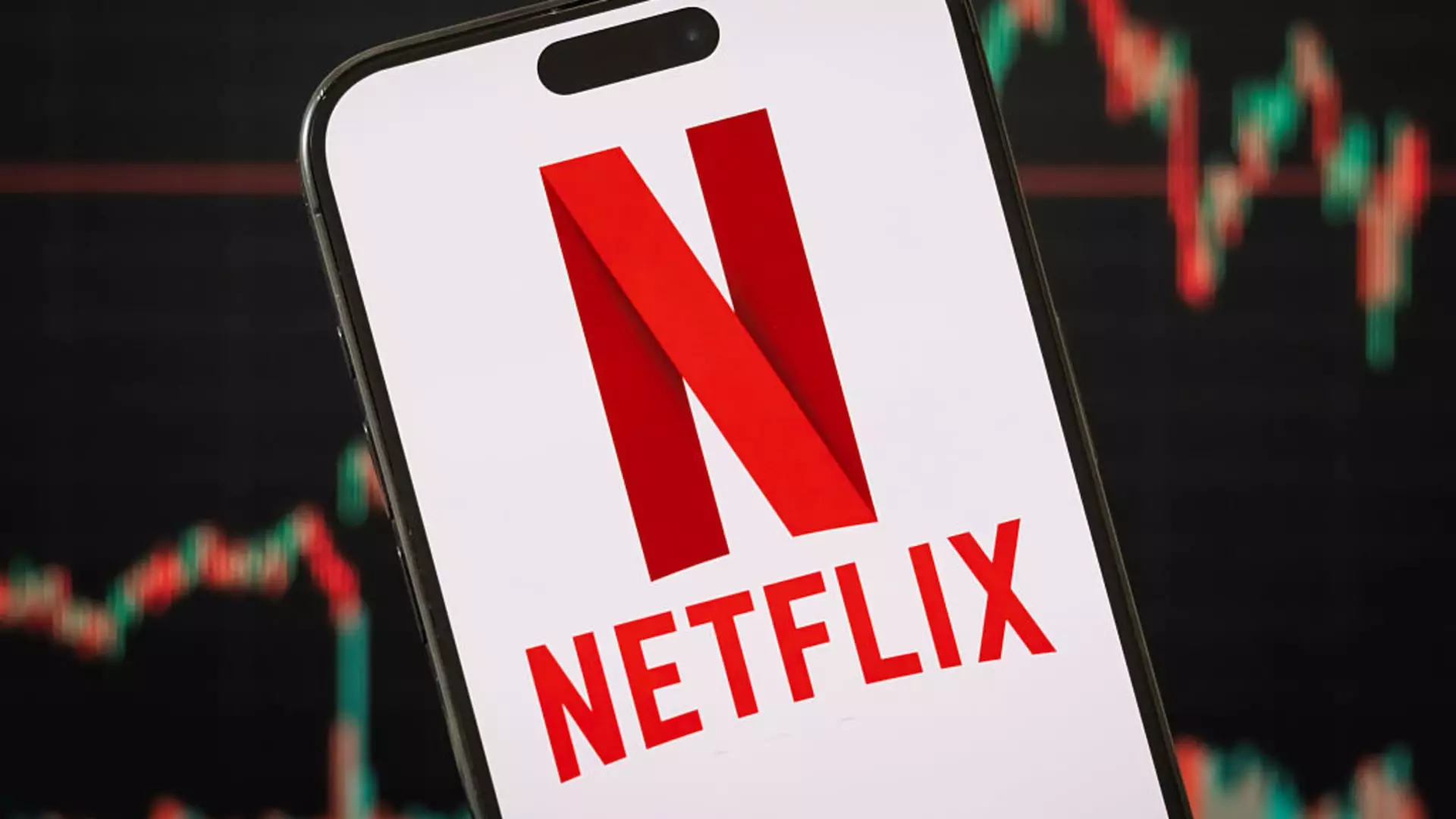In an era marked by financial unpredictability, Netflix has emerged as an outlier, setting an astonishing precedent with an eleven-day stock rally, the longest in its history. This unprecedented surge speaks volumes about both the company’s robust business model and the shifting landscape of entertainment consumption. Observers cannot help but commend this feat, particularly as the stock has repeatedly reached all-time highs since its public debut in 2002, showcasing an enduring appeal that transcends typical market fluctuations.
The record-breaking streak reminds us of the company’s earlier triumphs—its previous high was a nine-day stretch during the transitional phase between 2018 and 2019. The fact that Netflix has surpassed this benchmark not only illustrates its growing resilience but also solidifies its dominance in the digital streaming arena. Even industries conjoined by economic volatility, like traditional media, have faltered under the weight of a tumultuous political climate.
Financial Fortitude in a Tumultuous Market
Netflix’s recent earnings report further reinforces the company’s position as a powerhouse in entertainment. Revenue growth of 13% in the first quarter of 2025—a period fraught with challenges for many businesses—displays a staggering ability to navigate economic uncertainty. Throughout 2025, the streaming service has exhibited remarkable growth, outperforming its competitors who are struggling under the ramifications of political trade policies.
Surprisingly, Netflix appears almost immune to the financial fiascos wrought by these tariffs and trade wars, a testament to its value proposition in everyday consumer life. In contrast, traditional media conglomerates like Warner Bros. Discovery and Disney have witnessed an alarming decline, illustrating the dangers posed by outdated models in an evolving digital market.
Consumer Behavior in a Recession
As recession fears loom large, it is essential to explore why consumers are still gravitating towards Netflix. During economically trying times, entertainment has historically proven to be a stable source of comfort for the masses. Greg Peters, co-CEO of Netflix, aptly noted that “entertainment historically has been pretty resilient in tougher economic times.” His sentiment emphasizes the role Netflix plays in daily routines and highlights its position as a staple for consumers—a necessity rather than a luxury.
The statistics are compelling. Even with rising subscription prices—the standard plan now at a steep $17.99—the company has seemingly maintained its value. Consumers are willing to adapt to these changes in cost because they believe they are receiving a warranted service. In a world that is increasingly defined by uncertainty, it seems that the allure of quality entertainment remains unscathed.
The Advertising Strategy That Works
Further bolstering Netflix’s financial viability is its innovative advertising strategy. Analysts have intimated that the upcoming Advertising Upfronts in May could serve as a pivotal moment for the stock, positioning Netflix favorably in the lucrative market of advertisements. While many firms in the streaming domain have struggled with this transition, Netflix has adeptly paved the way, ensuring greater revenue streams while still catering to its diverse customer base.
However, the company’s recent decision to withhold subscriber numbers raises eyebrows. Instead of focusing on audience growth, Netflix has redirected its emphasis towards revenue generation. This pivotal shift could be interpreted in various ways; is the company masking dwindling numbers or showcasing successful monetization strategies? Transparency in these metrics could foster a deeper understanding of overall health.
The Road Ahead for Streaming Giants
As we move further into 2025, the streaming landscape is primed for evolution, with Netflix leading the charge. Its ability to adapt in the face of adversity marks it as not just a leader in entertainment, but a pioneer that holds the line against competitors like Disney and Warner Bros.
The larger question remains: how will Netflix navigate the complicated currents of global trade and consumer preferences? With a firm foundation and a committed consumer base, it seems that the service is well-positioned for continued growth—even as rivals struggle to find their footing. The resilience and adaptability showcased by Netflix signal promising opportunities ahead in a sector that is not only fighting for relevance but is also defining the future of entertainment.

